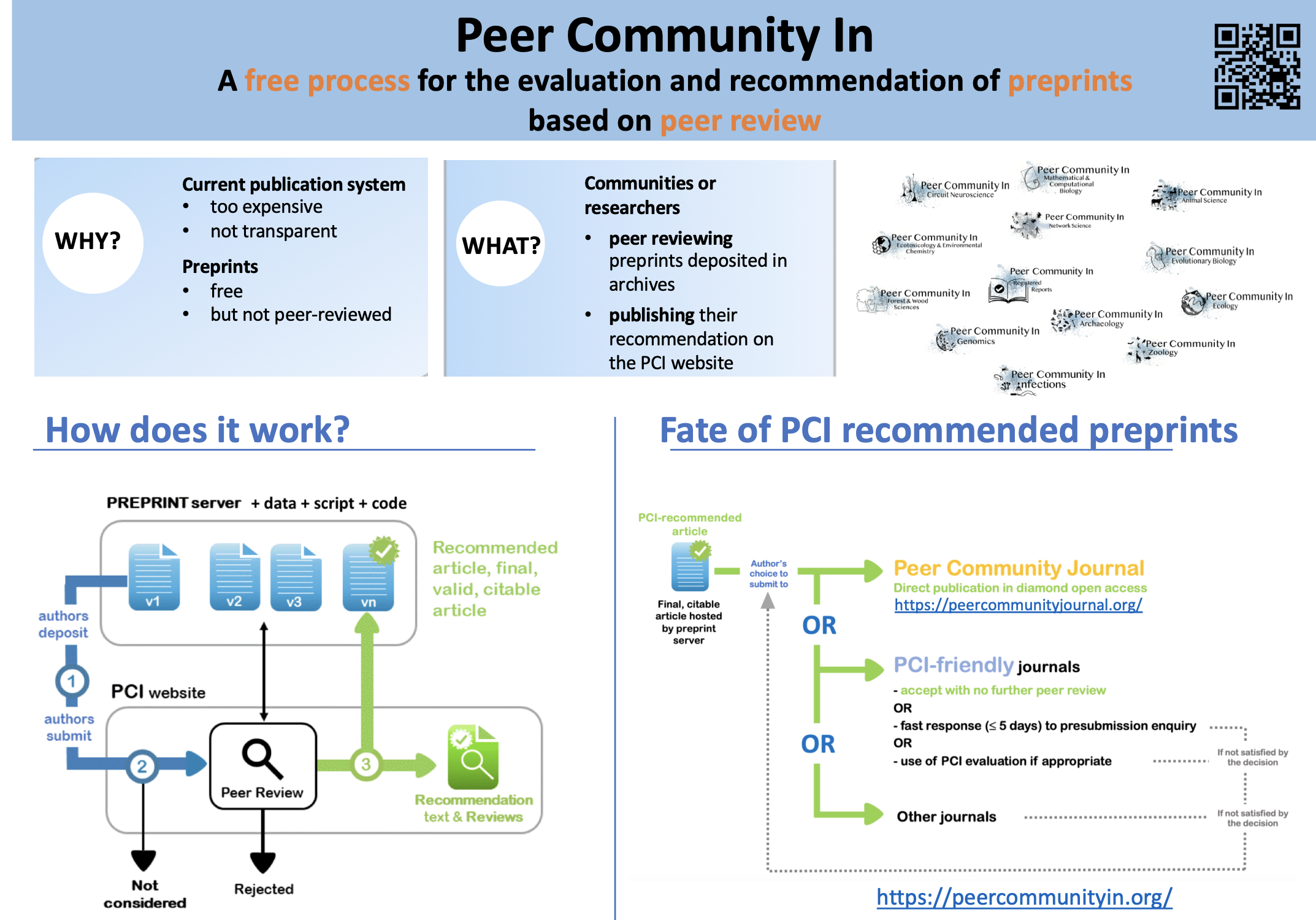Framaforms
Créez rapidement et simplement des formulaires en ligne
Créez rapidement et simplement des formulaires en ligne

A form aiming to kickstart a potential Peer Community In... plant sciences / photosynthetic organisms / phototrophs biology, including marine photosynthetic organisms. We want to try to gather together people that wish to start and maintain a community-based, post-publication peer review and recommendation system through a new Peer Community In.
More info about why- and how a PCI works can be found here: https://peercommunityin.org/faq/
and in this short, accessible video: https://www.youtube.com/watch?v=4PZhpnc8wwo
Problem/solution:
Current publishing system through for-profit journals is inefficient, costly, takes a lot of time, and is prone to gamification, with a focus on journal - rather than the work itself - quality. Critically, the work of reviewers is lost upon a transfer to another journal.
The PCI evaluation process is high-quality, free, and transparent.
Key features of the process (see https://peercommunityin.org):
1. It fulfils the open science commitments requested by an increasing number of institutions, countries, funding agencies
-All articles recommended by PCI have open data, scripts and code.
-All articles recommended by PCI are open access, freely accessible on preprint servers or institutional archives
-PCI ensures transparent peer review
2. It results in a peer-reviewed article that can be cited as is or published in a journal
-Authors are free to either leave their recommended article on the preprint server, or, if they need journal articles for their career, to publish it directly to Peer Community Journal or submit it to a PCI-friendly journal
3. It provides a solution to value reviewing and editorial work
-Recommendations (and associated reviews) are citable with their DOI
-Reviewers can choose to publish their names or to remain anonymous
-Institutions have direct access to reviewing work of their researchers, since each recommender of a thematic PCI has their own personal page for displaying and reporting their reviews, comments and recommendations.
4. It focuses on the scientific contents of articles and watches out for the ethical rules of publication
-Conflicts of interest are kept track of throughout the process
-Financial conflict of interest are forbidden
5. It shares the workload between researchers
-Recommenders, unlike associate editors in traditional scientific journals, have no commitment to review and recommend papers. Each recommender is rather encouraged to review and recommend 1 or 2 articles per year in average.
-Because of the high number of recommenders, PCI will not be jeopardized if some recommenders are inactive.
6. It benefits from a solid infrastructure
-PCI is managed by scientists from research institutions
-It was funded by the French National Open Science Fund
-It is financially supported by many universities and research bodies
-PCI ensures long-time conservation of its contents in CLOCKSS